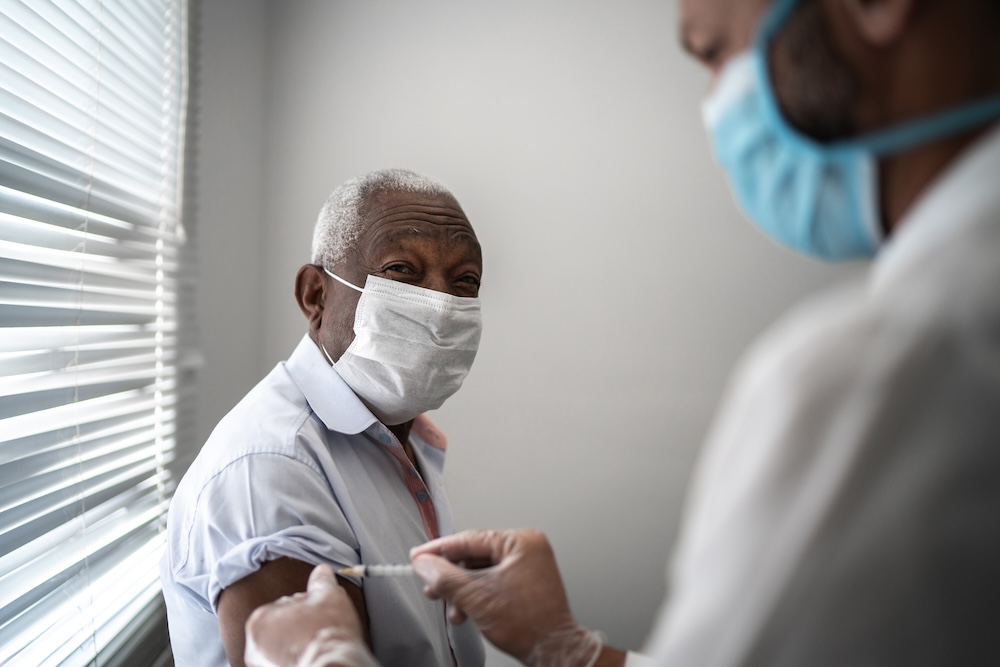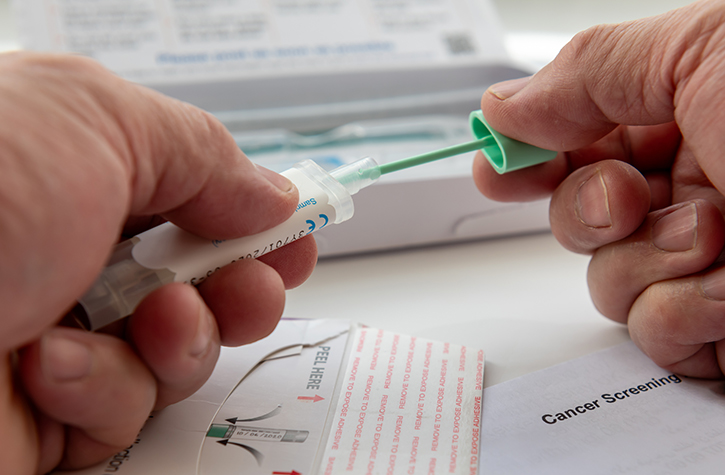October 21, 2024
The updated national colorectal cancer screening guidelines that recommend screening begin at age 45 — rather than 50 — can benefit younger adults, a new Kaiser Permanente study found.
The study, published in Annals of Internal Medicine, included 267,732 Kaiser Permanente members in Northern California, Washington, and Colorado ages 45 to 50 who received their first invitation for colorectal cancer screening along with a fecal immunochemical test (FIT) kit between January and September 2022.

Theodore Levin, MD
“The U.S. Preventive Services Task Force lowered the age to start screening in response to studies showing an increased rate of colorectal cancer in adults ages 45 to 49,” said co-first author Theodore R. Levin, MD, a gastroenterologist with The Permanente Medical Group (TPMG) and research scientist at the Kaiser Permanente Division of Research (DOR). “However, the change was based entirely on simulation modeling. We decided to collect real-world data on what happened when we began sending FIT kits to Kaiser Permanente members ages 45 to 49.”
The new study compared FIT kits returned by adults ages 45 to 49 with adults age 50. Everyone included in the study was receiving a FIT kit for the first time. Overall, 38.9% of adults ages 45 to 49 returned their FIT kit, compared with 37.5% of adults age 50. In the 45-to-49 age group, 3.6% of the adults had a positive result compared with 4% of the adults in the age 50 group.
In both groups, about two-thirds of the adults who had a positive FIT test went on to have a colonoscopy within 90 days of receiving the test result. Polyp detection during the colonoscopy was slightly lower in the younger group at 58.8% compared with 67.7% in the age 50 group. However, colorectal cancer detection rates were similar: 2.8% of those ages 45 to 49 and 2.7% of those age 50 received a cancer diagnosis following their colonoscopy.
Since 2008, Kaiser Permanente’s colorectal cancer screening program has provided FIT kits to all eligible members annually, starting at age 50. In January 2022, Kaiser Permanente adopted the Task Force’s new screening recommendations and expanded its program to include members ages 45 to 49.

Jeffrey Lee, MD, MPH
“Our study suggests that adults ages 45 to 49 have a colorectal cancer risk that is similar to what we see in adults age 50,” said senior author Jeffrey Lee, MD, MPH, a TPMG gastroenterologist and DOR research scientist. “These results provide strong support for guidelines that recommend colorectal cancer screening begin at age 45. The low number of cancers we found also provides support for initially offering younger adults a non-invasive test, like FIT, to determine which patients would benefit from a colonoscopy.”
Added Dr. Levin, “Previous studies we have conducted have shown that our FIT screening program reduces deaths from colorectal cancer and reduces cancer disparities. For adults ages 45 to 49, the fact that FIT is a non-invasive and easy-to-use test makes it a good option for screening this population.”
The study was funded by the Kaiser Permanente Sidney R. Garfield Memorial Fund.
Co-authors include Christopher D. Jensen, PhD, MPH, Natalia Udaltsova, PhD, Jessica M. Badalov, MS, RD, and Charles P. Quesenberry, PhD, of the Division of Research; Andrea A. Burnett-Hartman, PhD, Brian P. Hixon, MS, Shauna R. Goldberg, MPH, and Larissa L. White, PhD, of Kaiser Permanente Colorado Institute for Health Research; Aruna Kamineni, PhD, MPH, Gaia Pocobelli, PhD, Malia Oliver, BA, and Susan C. Bradford, MS, of the Kaiser Permanente Washington Health Research Institute; Chun R. Chao, PhD, Nirupa R. Ghai, PhD, MPH, and Hina Chowdhry, MPH, of Kaiser Permanente Southern California Department of Research & Evaluation; and Joanne E. Schottinger, MD, of the Kaiser Permanente Bernard J. Tyson School of Medicine.
This article originally appeared on Division of Research Spotlight.






